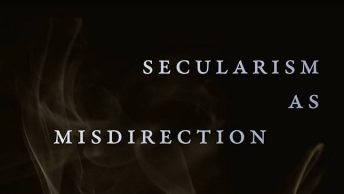week, the National Advisory Council made a little noticed recommendation concerning
what they term the pre-legislative process. The name “pre-legislative process” is
a bit of a misnomer in that their recommendation concerned how ministries
approach not only drafting legislation, but also drafting rules, or subordinate
legislation.
both new legislation, new rules, and amendments to either the NAC recommends
that an executive order be passed requiring all central ministries put into
the public domain for 45 days an announcement that it will be drafting a piece
of legislation or rule. This announcement would not only lay out the essential
elements of the proposed legislation/rule, but give a statement of reasons
justifying the proposal and detail the broad financial implications and the
estimated impact on the environment, fundamental rights, and the lives of affected
people. The Ministry is also required to make the eventual draft legislation
public for 90 days and reach out to the public for consultation. All feedback
received about the legislation/rule must be made public, as well as the
Ministry’s response to the feedback.
general thrust of the NAC’s recommendations should be welcomed and are in many
ways long overdue. Essentially, the proposal would add transparency and the
requirement of reason-giving and consultation to all Ministry action concerning
the creation of legislation and rules.
it’s worth breaking down the justification for doing this for legislation and
rules separately, as they are indeed separate justifications conceptually and
the recommendation concerning legislation is generally considered more
controversial than concerning rules.
start with rule-making to understand what is going on here. Rules are important
(if anyone doubts this consider how Indian politics would be moving forward
right now if there had been, let’s say, different rules created for the
allocation of coal or telecom spectrum). Crores of Rupees are often at stake or
the livelihoods of thousands. Yet, rules are often created under the
guidance of one Minister or even just some top-level bureaucrats. All
rules are technically tabled in Parliament for a vote and there is a committee in
Parliament looking at such subordinate legislation, but even committee members do
not have time to examine most rules in any detail and generally just make sure
that the proposed rule does not violate the constitution.
modern democracy faces this problem. Major decisions are being made through
rules, yet representatives of the people are generally not aware of them. So
what to do? One response globally is to create a requirement (often through an act) that all rules have to be tabled by
ministries/agencies in advance, justification given, and some degree of consultation
with the public mandated. This creates a double check. Ministries are forced to
publicly think through the reasons they are creating rules. For example, if a
ministry decides it doesn’t want to allocate telecom through an auction it will
have to explain why in advance and can’t change its reasons later if such a
decision becomes contested. Secondly, the public can act as an alarm bell for
Parliament, or even others in the Executive, to flag particularly poorly
designed rules. Then, if necessary, Parliament can reject a poorly designed
rule or perhaps the Prime Minister can step in to see that it is changed.
that have mandates like the ones being proposed for the creation of rules in India
usually find such reason-giving and consultation a step-forward, even if a
limited solution. Those with money (and near the capital) are in the best
position to track rule-making and give input. Diffuse public interests are
often not represented in the rule-making process although environmental and
some civil society groups have proved savvy at shaping the process as well. In
an attempt to overcome these representation problems, in the United States
law firms will sometimes make comments on rules with the public interest in
mind as a pro bono service. In South
Africa, comments are often made by
government created institutions like human rights commissions that attempt to
serve as a proxy for the broader public interest. Still, special interests are
often in the best position to give comments.
with such mandates for consultation and reason-giving face is getting the
government to follow the process. For a responsive government, not all rule making should require such long drawn-out
public input. However, in the US the government has often cited exemptions built into the Administrative Procedure Act to get around publishing rules in advance even for rule-making that is important (see this GAO report for more details about how agencies in the US did not follow the pre-publication requirement for about 35% of major rules between 2003-2010).
for rules – i.e. a justification and cost-benefit analysis – can seem like a
pure good and step forward. Who wouldn’t want rules that hadn’t been thought
through? Yet, even here the challenge is finding the balance between meaningful
due diligence and the costs of such reflection. For example, what would
constitute an adequate assessment of the impact of a proposed rule on
fundamental rights? Is it just a bureaucrat thinking about it for a few moments
at her desk and then writing down whatever she thinks? Or would it require an
expensive study from an outside group that included large surveys of the
impacted population? Likely, the answer is somewhere in between.
Given the blurriness of what is effective consultation and reason-giving the
most difficult challenge is enforcement. In particular, what redress do parties
have if they claim the government has not gone through the required process?
Can they go to court? If so, by what standard will a court judge whether
there has been effective consultation or reason-giving, and if the court finds it
has been lacking will the judge actually strike down the rule, even if millions of
people have already relied on it?
of administrative law is about trying to force the state to think in certain
ways – taking on board multiple interests and shared values. As Jerry Mashaw has written in one of my favorite adlaw essays, administrative law is the embodiment of the
enlightenment project – – the triumph of public reason over cloistered thinking,
prejudice, and arbitrariness. Yet, given the messiness of what constitutes “reason” and the limited avenues of influence on the state, it structures a process that can get us only so far.
step in the right direction, even if there are many unanswered questions about
enforcement or on the mechanics of implementation. In Part II of this post, I will
discuss the more controversial proposal to have a similar process for the
drafting of legislation by ministries, as well as some reflections on the
proposal to push these reforms through an executive order rather than an act.





